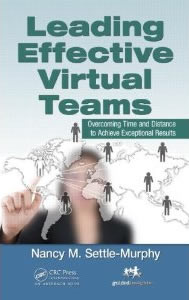The kids in our high school were shattered when news spread last month that a popular senior took his own life. Everyday life for these kids screeched to a halt as they struggled to process how such a tragedy could have happened to one of their own. This was the first time many experienced the death of a peer, and their first acquaintance with suicide by someone close.
The school administration, with permission from the boy’s parents, asked teachers to relay the news, offering counseling for anyone who felt a need to talk. They sent informative emails to parents, encouraging us to invite conversations with our kids.
My daughters, and many of their peers, were stupefied that anyone would think that kids would just walk into a counselor’s office and “have a conversation.” One of my daughters asked: “What does that even mean? How would that even go?”
And that’s when it hit me: Our kids have lost the ability (and many, the desire) to have 1:1 conversations of any substance that require more than a few minutes of time. Even at a time of intense emotion when a meaningful dialogue could help immeasurably to lift their grief and allay their guilt, they didn’t know how to start the dialogue.
Sherry Turkle’s excellent new book, Reclaiming Conversation: The Power of Talk in a Digital Age, has brought to light some of the reasons we have lost the ability and inclination to have conversations, and gives tips about what we can do to reverse the trend. (This avoidance of conversation is by no means unique to our kids, but since they have grown up with most conversations mediated by digital technology, reversing the trend can be that much harder.)
Here are some of her insights that gave me cause for pause, and I hope they do the same for you. For steps we can take to reclaim conversations in our personal and professional lives, you can download my tip sheet, which builds on some of Turkle’s sage advice.
- We permanently alter or weaken parts of our brain when we train them to think shallow thoughts. That’s right: The less time we allocate to reflective thinking or real conversations, the more superficial our thinking actually becomes – possibly forever. By exposing ourselves to constant interruptions (many of our own making), we remap our brains in a way that can make it almost impossible to think or converse deeply. Imagine the implications for our kids, many of whom have grown up communicating only in very short bursts!
- We have increasingly little patience for conversations that demand active listening and sustained attention. As a meeting facilitator, I have to work incredibly hard to keep conversations focused and engaging, in both face-to-face settings and certainly during virtual meetings. Even when people have shut off their devices, many fidget in their seats, perhaps because they’re imagining what emails or texts they’re missing.
- Technology makes it easy to actively avoid conversations and harder to make emotional connections. Why spend precious time talking to someone when you can send a text or an IM? Conversing can be so After all, we have to stop and actually listen to what the other has to say, and then have to formulate our response, and the other has to reply, and so on. By texting or IM’ing, we can communicate on our own terms and in our own time. Best of all, we don’t have to deal with messy emotions. We can’t see the look of disappointment when we send regrets for not showing up or apologize for letting a colleague down. Difficult messages are so much easier to deliver when we can simply drop them into a text, IM or Snapchat. Many teenage offenders I work with in my Communities for Restorative Justice capacity need coaching about how leave a voicemail. Calling a “live” person on the phone can be downright terrifying.
- Our ability to empathize is disappearing. Turkle cites a study that shows a 40% decline in markers for empathy among college students over the last 10 years. This trend may well be true for both younger kids and adults, who mediate most of their communications through technology. When we stare at our screens more intently than we look into someone’s eyes, it becomes harder to communicate when we’re face to face. Making eye contact becomes a challenge, body language and facial expressions are difficult to decipher, and expressing one’s own thoughts and feelings can be daunting for those more comfortable expressing their emotions electronically. Nonverbal cues and nuanced verbal communications are often missed altogether.
- Multitasking degrades our performance almost universally, while giving us the feeling that we are actually achieving more. People who claim they are “good at multitasking” may know how to move quickly from task to task, but in reality, their ability to perform any one task diminishes significantly. Chronic multitaskers, Turkle points out, don’t ever get better at it; they just want more of it. Thus, frequent multitaskers often find conversations that demand continued focus or reflective thinking to be “slow and boring.” No wonder it’s so hard to grab and keep peoples’ attention in meetings! People convince themselves that they are able to conduct multiple conversations at once, when in reality they are simply executing transactions.
- We mistake interruptions for real connections. Have you been in the middle of a conversation when the person you’re speaking with whips out her phone to scan her screen? I want to ask: “Wait – what is the urgency? Did you not realize that I was talking? Is this conversation boring you? Should I take out my phone, too, until you’re done?” Turkle points out that those who interrupt real conversations in favor of online exchanges believe that this makes them even “more connected,” even though in reality they are cutting off those right in front of them. I suspect that the search for connections and the desire for “likes” may be the reason so many young people peck at their phones in silence even when they’re together. (And many adults I know aren’t that much better.)
- The quality of our thinking has been compromised. The less time we give ourselves for reflection and conversation, the less clearly we think. Well-thought-out ideas take time to formulate, evaluate and validate. While we may feel more productive by engaging in a constant barrage of electronic communications, in fact, the quality of our thinking suffers when we don’t allocate the time needed to think through and share our ideas with others.
So where do we begin to reclaim conversations? For starters, put away your phone when you’re in a conversation, whether with your kids (especially with your kids!), a colleague, friend, or even a stranger. Ask them if they’d mind doing the same. Look people in the eyes. Ask questions. Read body language. Volunteer your ideas. Avoid multiple conversations, no matter how tempted you are to glance at your screen. Listen intently; a pad and paper are excellent tools for this. Intentionally set aside time for quiet reflection and focused conversation. Ask friends, family and colleagues to let you know when you appear tuned out, and give them permission to do whatever it takes to reel you back in. Even if you choose just one new person each day with whom you resolve to have a real conversation, that’s a great start.
Links
Practical steps you can take to reclaim conversations – tip sheet (downloadable PDF)
Reclaiming Conversations: The Power of Talk in a Digital Age by Sherry Turkle – an eye-opening, riveting and important read
The Art of Condolence – New York Times article (10/1/16)
How to Listen Deeply in a Virtual World – tip sheet (downloadable PDF)
Facilitation Skills Training offerings by Guided Insights
Related Communiques:
To Get People Talking, Ask the Right Questions
Just Because You’re Silent, You May Not Really be Listening
Real-time Conversations Crucial for Networking in a Virtual World




